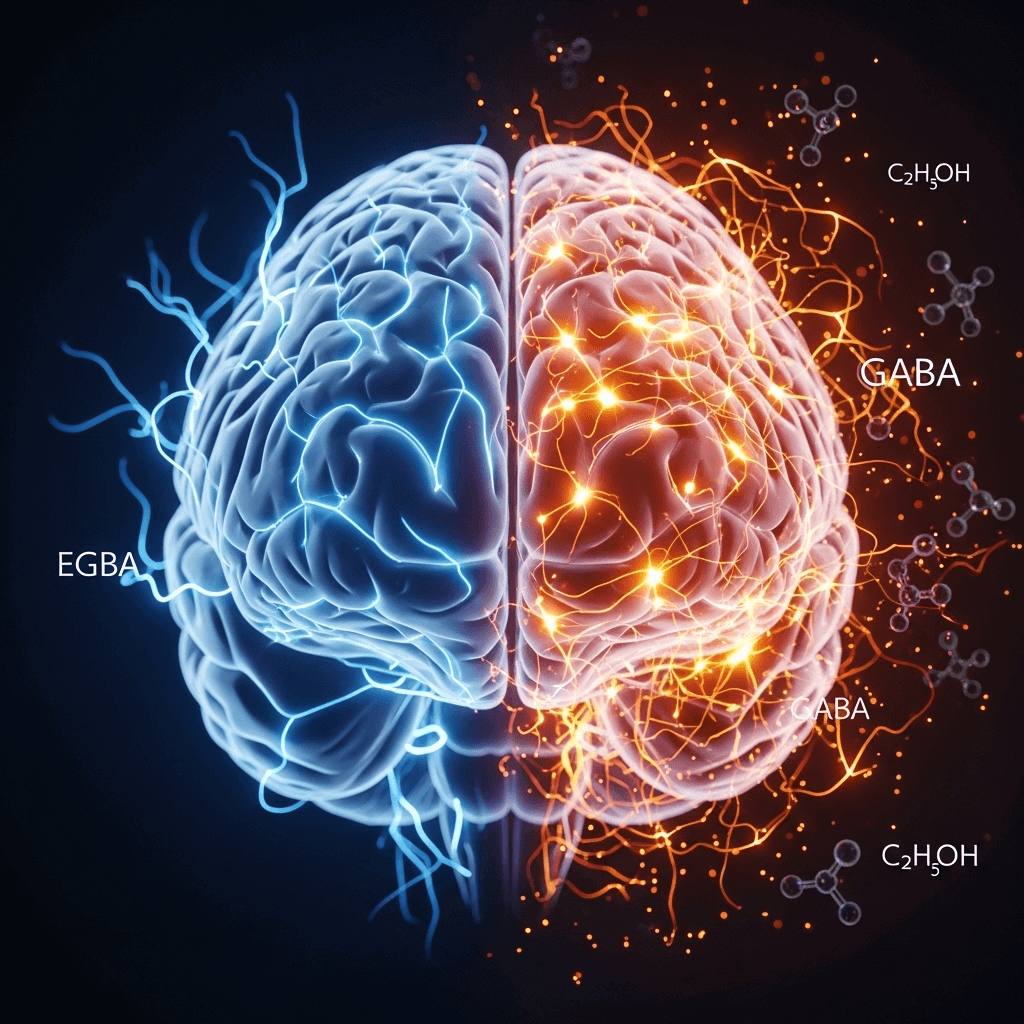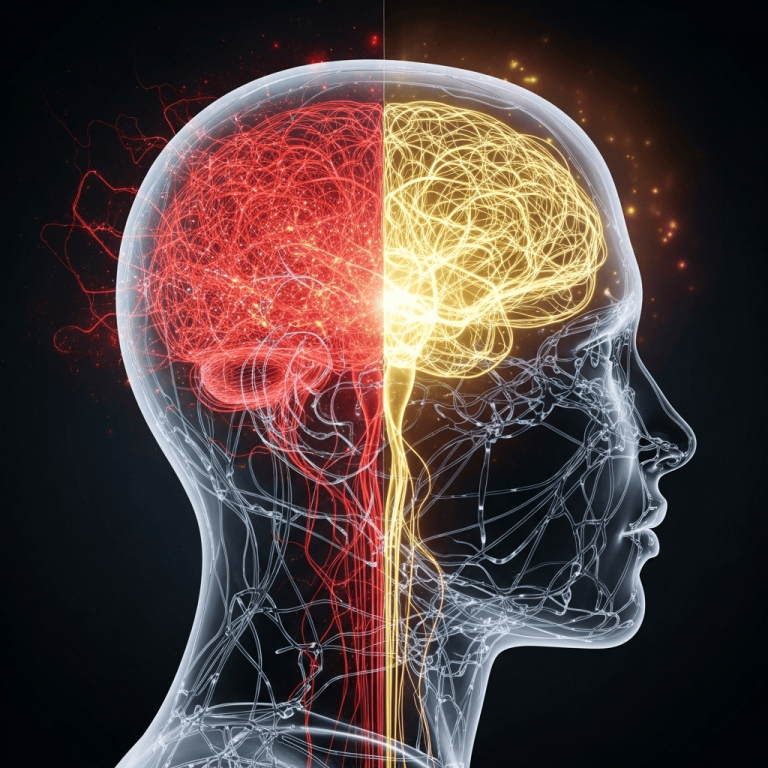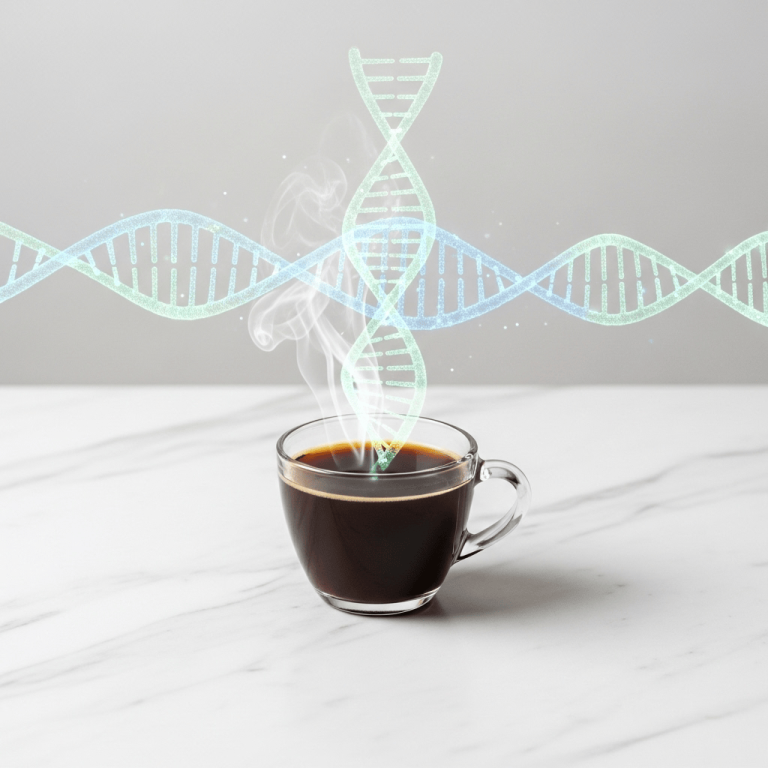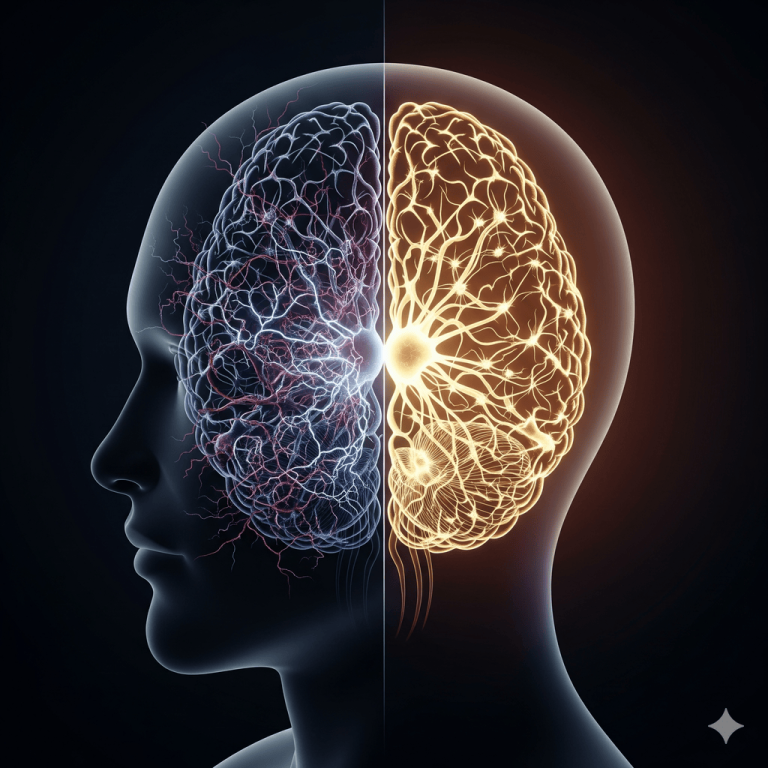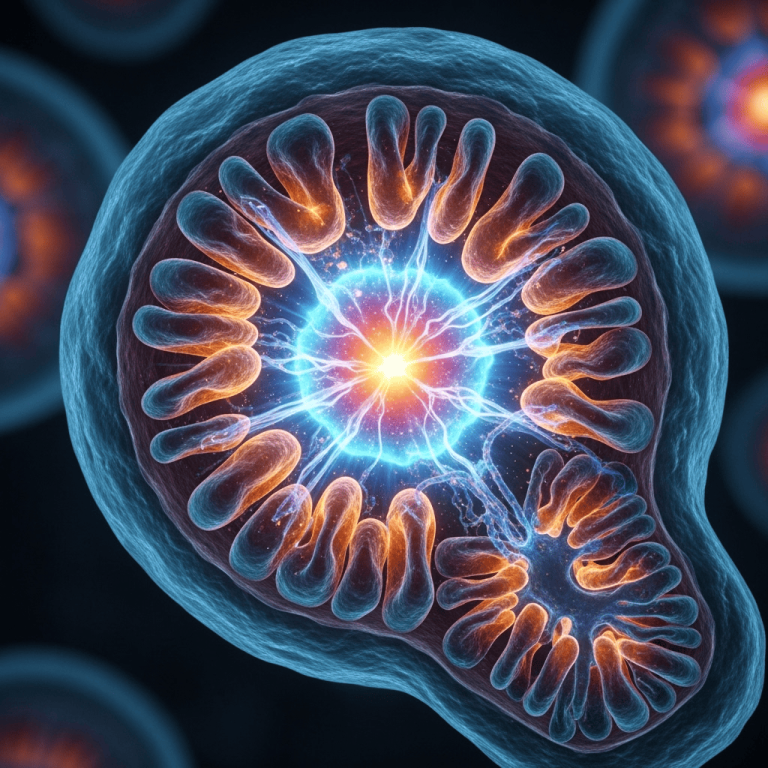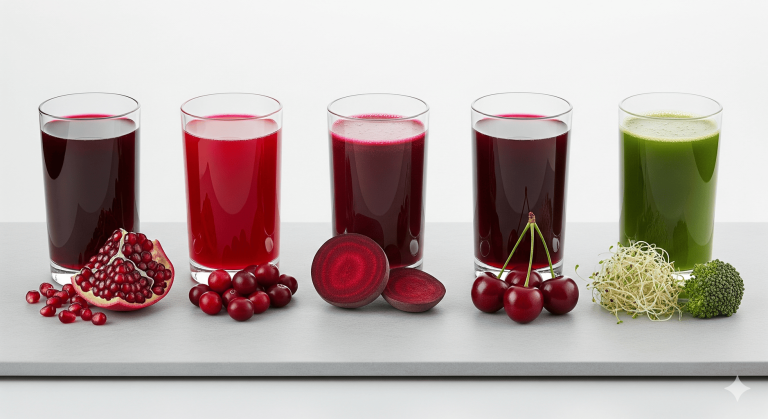Your Body on Alcohol: The Hidden Biological Cascade Triggered by a Single Drink
We often think of a night out as a simple equation: a few drinks, some fun, and maybe a headache the next day. But what if I told you that from the very first sip, you initiate a complex and demanding biological cascade that ripples through your entire system? This isn’t about judgment; it’s about understanding the hidden contract you sign with every glass.
The Brain: A Delicate Balancing Act Disrupted
Your brain operates on a precise balance of signals—some that say “go” (excitatory) and others that say “stop” (inhibitory). Alcohol is a master manipulator of this system.
“Alcohol acts like a sledgehammer to the brain’s fine-tuned communication network,” explains Dr. David Nutt, a leading neuropsychopharmacologist. It primarily enhances the effect of GABA, our main “stop” signal. This is why the first drink can feel relaxing—your brain’s activity is literally being dampened. Simultaneously, it blocks glutamate, a key “go” signal, leading to slurred speech, slower reaction times, and impaired memory. Your brain, trying to maintain equilibrium, fights back by down-regulating GABA receptors and up-regulating glutamate receptors. This frantic recalibration is a major contributor to the anxiety and poor sleep quality many experience after drinking.
The Liver: Your Body’s Overworked Detox-Central
While your brain is dealing with a chemical flood, your liver is facing a toxic emergency. It prioritizes metabolizing alcohol above all other functions, like processing nutrients or fats. The primary byproduct of this process is a substance called acetaldehyde, a compound so toxic it’s a known carcinogen. Acetaldehyde is responsible for much of the cellular damage and inflammation associated with alcohol consumption.
Chronic exposure forces the liver to work overtime, leading to an accumulation of fat—a condition known as fatty liver disease. Over time, this can progress to alcoholic hepatitis, fibrosis, and ultimately, cirrhosis, where healthy liver tissue is replaced by scar tissue, severely compromising its function.
Beyond the Hangover: The Impact on Longevity
The effects don’t stop there. Alcohol dehydrates you by inhibiting a hormone that helps your body retain water. It severely disrupts your sleep architecture, particularly the REM phase, which is crucial for memory consolidation and emotional regulation. This is why a night of drinking often leaves you feeling physically and mentally exhausted, no matter how long you “slept”.
From a longevity perspective, these events are significant. Each stage—from the neural disruption to the cellular cleanup—generates oxidative stress and inflammation, two of the primary drivers of the aging process. It’s a tax levied on your healthspan, accelerating the wear and tear on your most vital systems.
Understanding this intricate process isn’t about demonizing alcohol. It’s about empowering you with knowledge. Your daily choices are the most powerful tool you have for shaping your health and lifespan. Are you using them to build a more resilient, healthier future?
What does your unique biological data say about your longevity potential? Modern science and AI can now analyze your lifestyle choices to create a personalized roadmap to a longer, healthier life. Discover your potential and get actionable insights. Take the assessment on LiveLongerNow.org
Further Reading & Scientific Publications:
- Alcohol’s Effects on the Brain and Body – National Institute on Alcohol Abuse and Alcoholism (NIAAA)
- GABA and Glutamate in the Human Brain – A review in the journal Neuroscientist.
- Acetaldehyde and Aldehyde Dehydrogenase in Alcohol-Associated Cancers – Published in Alcohol Research: Current Reviews.

